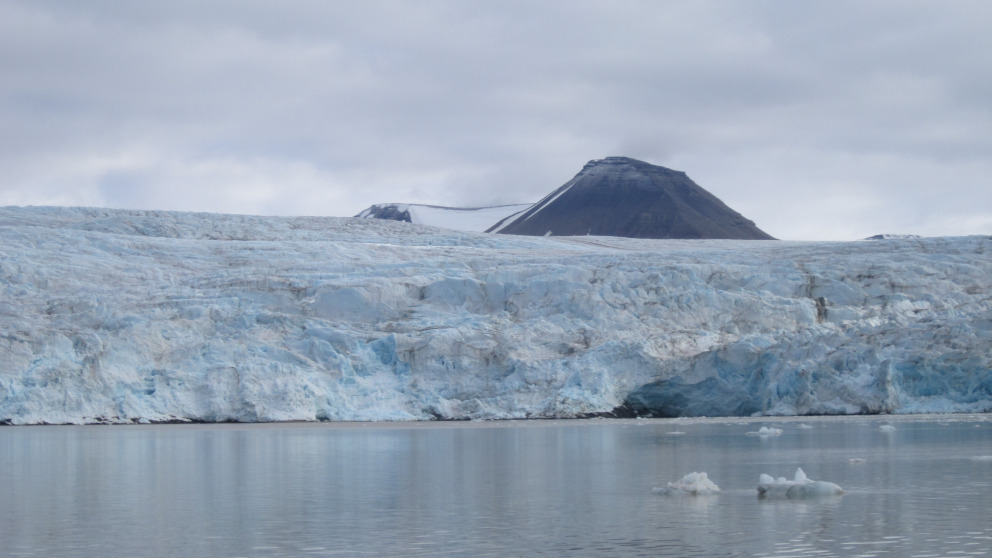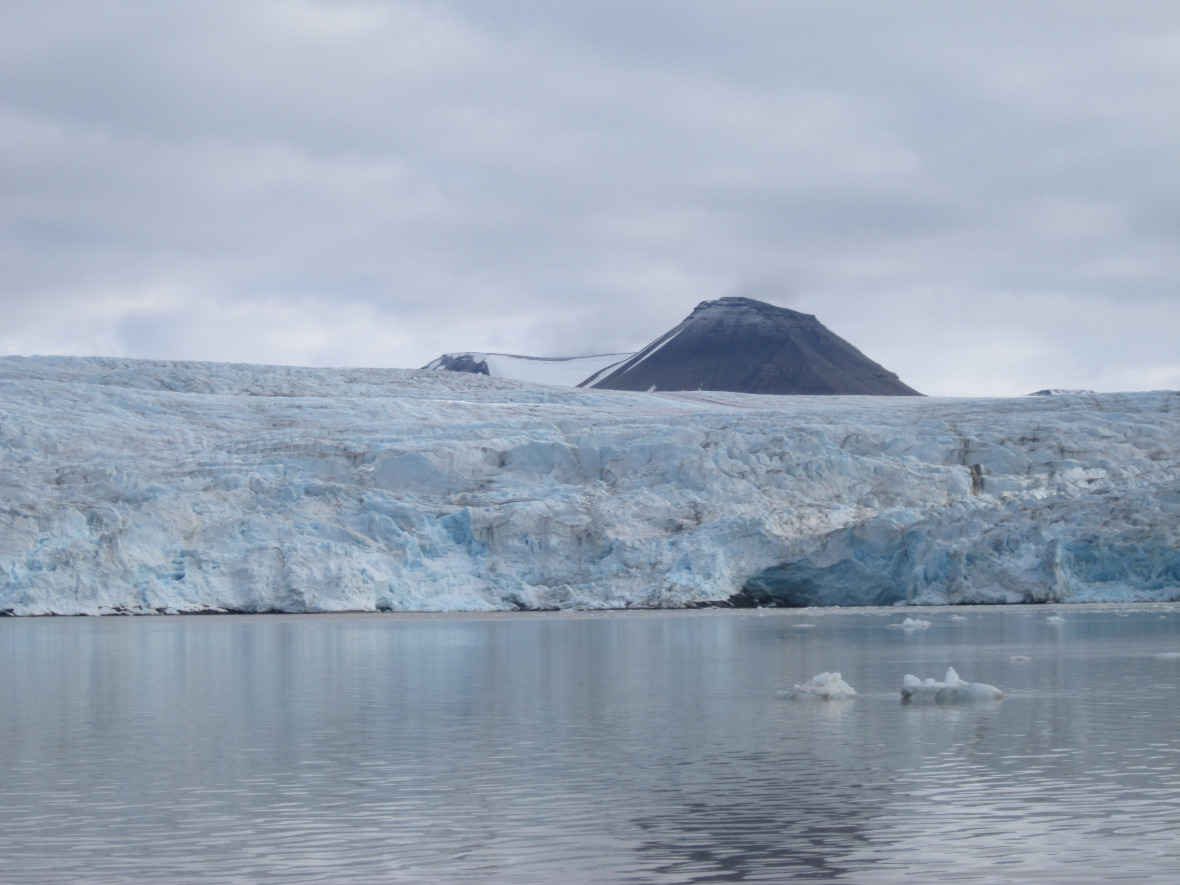Headline:
New Approaches in International Cooperation Needed as Arctic Sea Ice Declines
Adapting to Climate Change

Long treated as a remote and isolated region, climate change and new economic prospects have pushed the Arctic to the forefront of the international political agenda. In “Governing Arctic Change: Global Perspectives”, a new book edited by political scientists Kathrin Keil (IASS) and Sebastian Knecht (Freie Universität Berlin), leading and emerging scholars in Arctic research investigate governance challenges affecting this changing region from an international perspective. The authors explore the causes and consequences of contemporary Arctic developments, and assess the responses of state and non-state actors to crucial problems for the global community.
Arctic climate change already affecting weather in temperate regions
Temperatures in the Arctic are rising at a rate that is twice the global average. This has led to a dramatic decline in the thickness of ice in the Central Arctic Ocean and in the overall extent of Arctic sea ice. In addition to this, the Arctic is acting as a ‘sink’ for a range of pollutants, including black carbon, mercury, and persistent organic pollutants POPs), which are transported to the region from sources south of the Polar Circle by ocean currents and winds. These pollutants have grave consequences for human and environmental health.
“While the sources and drivers of Arctic environmental pollution and climate change are primarily located outside the Arctic, their impacts are causing significant problems across the region. But these problems are not confined to the Arctic alone and are already having a noticeable impact on weather patterns in the temperate zones,” said Kathrin Keil. It is no surprise then that interest in research on the Arctic is growing.

Transnational approach needed to protect the Arctic
Adopting an integrated perspective on Arctic affairs, the authors make recommendations to improve governance approaches to major challenges affecting the region in times of global nexuses, multi-level politics, and multi-stakeholderism. In their introduction to the book, Keil and Knecht put forward the new paradigm of a “global Arctic” as an analytical perspective developed to capture the heterogeneity of relevant actors, processes, and fields of governance. This is, fundamentally, an attempt to open the field of Arctic research to new ideas and approaches as a means to foster better understanding of the Arctic as a region that is firmly embedded in global processes. Policy-makers, they argue, would do well to adopt this new paradigm, as an improved understanding of the complex links between changes processes at the regional and global levels will be critical to identifying sustainable development pathways for the region.
The growing influence of non-state actors
Against this background, several of the volume’s authors explore the prospects for engaging relevant actors in institutional processes as a means to lend greater weight to Arctic transformations within policy debates. Researcher Dorothea Wehrmann from the Center for InterAmerican Studies at Bielefeld University, Germany, examines the involvement of non-state actors in the governance processes of the region’s key political forum, the Arctic Council. According to Wehrmann, the capacity of individual non-state actors to influence proceedings at the council is affected by a range of factors, including their ability to muster sufficient personnel, financial and analytical resources, as well as the particular format of the discussions they attend. While it is difficult to measure the extent of their influence, there has already been a significant shift within the classical hierarchy between state and non-state actors, Wehrmann notes. No longer the mere “consumers” of state policies, non-state actors are actively working to set the agenda and contributing to the elaboration of policies affecting the Arctic Region.
Other contributions examine the roles of diverse actors and explore the major policy issues and challenges presented by the global Arctic. The range of issues addressed in this volume spans new forms of institutional stakeholder engagement at multiple levels, governance strategies to combat climate change, and the pros and cons of Arctic resource development for the region and beyond as well as local and cross-border pollution issues.
Keil, K., Knecht, S. (2017): Governing Arctic Change: Global Perspectives, Basingstoke, UK : Palgrave Macmillan, 319 p.
Reviews:
“The contributors to this well-integrated and sophisticated collection are able to produce significant insights regarding the increasingly complex pattern of Arctic governance by analyzing the dynamic interplay among issues, interests, institutions, and imaginaries. In the process, they advance our understanding of global governance more generally.” (Professor Oran R. Young, University of California, Santa Barbara, USA)
“The Arctic is undergoing rapid change. This important and timely new book demonstrates that this is not the change of and in a remote region, but that Arctic change affects, is affected by, and is framed in global contexts and through global imaginaries. This is simply one of the best and nuanced analyses of the contemporary global Arctic available in the social sciences.” (Professor Mathias Albert, Bielefeld University, Germany)
“The deeper global approach of this edited book makes it a valuable contribution to Arctic research and a welcomed follow-up to the discussion on globalization and the circumpolar North. I can recommend the book to those scholars, other experts, and post-graduate students, who are already familiar with basic issues in the fields of IR, global politics, international law, governance, as well as the Arctic.” (Professor Lassi Heininen, University of Lapland, Finland)
